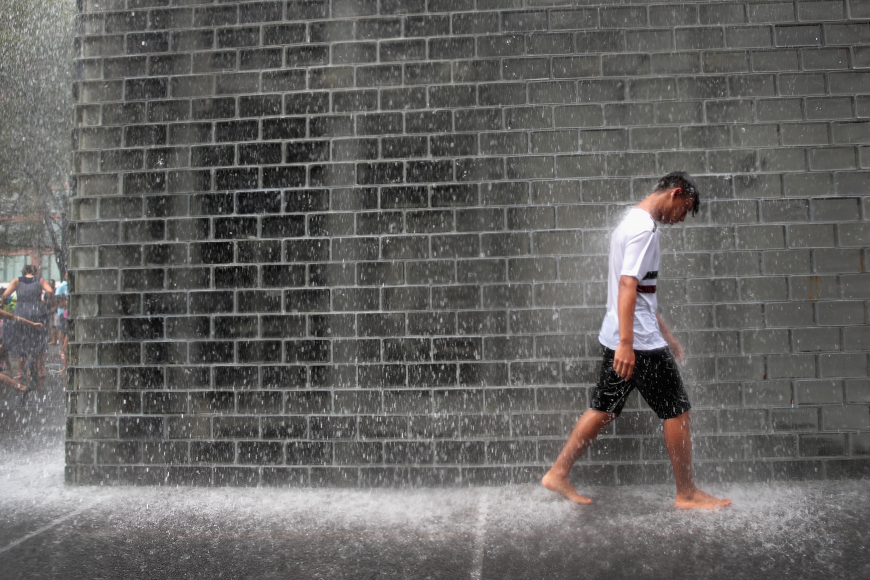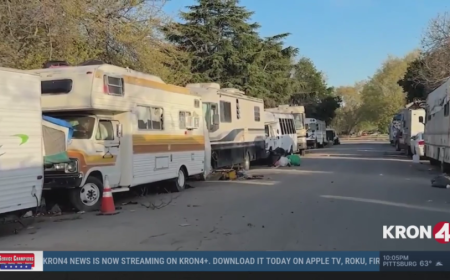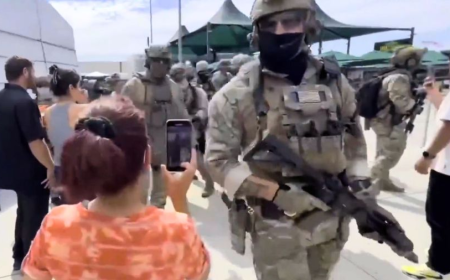Hot, humid weekend expected in Chicago area, National Weather Service warns
Residents in the Chicago area may have to take steps to stay cool later this week, as forecasters warn of “increasing” chances for a hot and humid weekend. According to the National Weather Service, heat indices could exceed 100 degrees at times over the weekend, and relief from the heat may not arrive for several days. Tuesday will provide a taste of that type of heat and humidity for the Chicago area, with highs rising to nearly 90 degrees and the humidity pushing heat indices into the mid-90s, according to forecast models. That heat will be knocked out by rounds of showers and thunderstorms, with some severe weather possible Tuesday and then again on Wednesday, according to the Storm Prediction Center. All manner of severe weather threats could impact the area on Tuesday and Wednesday, including gusty winds, hail and potentially even a few isolated tornadoes. Those showers and storms are expected to exit the area by late Wednesday night, with several dry and seasonably warm days expected on Thursday and Friday, with readings in the low-to-mid 80s and lower humidity levels, according to the NBC 5 Storm Team. The main event for the heat and humidity is expected to arrive in force on Saturday, with winds shifting out of the south and causing temperatures to soar. According to the National Weather Service, their confidence in hot and muggy conditions over the weekend is “increasing,” with some forecast models suggesting that heat indices could rise above 100 degrees on Saturday and for several days thereafter. The hottest temperature Chicago has recorded so far this year was on May 15 when the mercury hit 94 degrees at O’Hare International Airport. In fact, the city has only hit 90 degrees twice this year, doing so on June 11 as well, according to the National Weather Service. In addition, low temperatures may remain in the mid-70s, making it even more critical for residents to find places to cool off amid the hot and humid conditions. As a result, residents are being encouraged to know the signs of heat-related illness, and to take steps to keep themselves safe amid the soaring temperatures. Among the tips provided by NWS are to limit strenuous activity outdoors, to ensure that pets and children are not left unattended in vehicles, and to frequently drink water and to take breaks in shaded or air-conditioned areas when possible. Residents are also being urged to guard against heat exhaustion and heatstroke. Heat exhaustion symptoms include dizziness, thirst, heavy sweating, nausea and weakness. Anyone suffering from any of those symptoms should be moved to a cooler area, and to ensure they are wearing loosened clothing. Sipping cool water slowly is also key in those situations. Symptoms of heatstroke include confusion, dizziness and slurred speech, along with elevated body temperatures, according to Mayo Clinic. Medical attention is absolutely critical, as going without can result in death or even permanent disability, according to officials. This story uses functionality that may not work in our app. Click here to open the story in your web browser.

Residents in the Chicago area may have to take steps to stay cool later this week, as forecasters warn of “increasing” chances for a hot and humid weekend.
According to the National Weather Service, heat indices could exceed 100 degrees at times over the weekend, and relief from the heat may not arrive for several days.
Tuesday will provide a taste of that type of heat and humidity for the Chicago area, with highs rising to nearly 90 degrees and the humidity pushing heat indices into the mid-90s, according to forecast models.
That heat will be knocked out by rounds of showers and thunderstorms, with some severe weather possible Tuesday and then again on Wednesday, according to the Storm Prediction Center.
All manner of severe weather threats could impact the area on Tuesday and Wednesday, including gusty winds, hail and potentially even a few isolated tornadoes.
Those showers and storms are expected to exit the area by late Wednesday night, with several dry and seasonably warm days expected on Thursday and Friday, with readings in the low-to-mid 80s and lower humidity levels, according to the NBC 5 Storm Team.
The main event for the heat and humidity is expected to arrive in force on Saturday, with winds shifting out of the south and causing temperatures to soar.
According to the National Weather Service, their confidence in hot and muggy conditions over the weekend is “increasing,” with some forecast models suggesting that heat indices could rise above 100 degrees on Saturday and for several days thereafter.
The hottest temperature Chicago has recorded so far this year was on May 15 when the mercury hit 94 degrees at O’Hare International Airport. In fact, the city has only hit 90 degrees twice this year, doing so on June 11 as well, according to the National Weather Service.
In addition, low temperatures may remain in the mid-70s, making it even more critical for residents to find places to cool off amid the hot and humid conditions.
As a result, residents are being encouraged to know the signs of heat-related illness, and to take steps to keep themselves safe amid the soaring temperatures.
Among the tips provided by NWS are to limit strenuous activity outdoors, to ensure that pets and children are not left unattended in vehicles, and to frequently drink water and to take breaks in shaded or air-conditioned areas when possible.
Residents are also being urged to guard against heat exhaustion and heatstroke. Heat exhaustion symptoms include dizziness, thirst, heavy sweating, nausea and weakness. Anyone suffering from any of those symptoms should be moved to a cooler area, and to ensure they are wearing loosened clothing. Sipping cool water slowly is also key in those situations.
Symptoms of heatstroke include confusion, dizziness and slurred speech, along with elevated body temperatures, according to Mayo Clinic. Medical attention is absolutely critical, as going without can result in death or even permanent disability, according to officials.
This story uses functionality that may not work in our app. Click here to open the story in your web browser.
What's Your Reaction?



































































































